Written by Morayo Talib
Instagram: @TalibMorayo_Ola
What makes Frank Herbert’s epic account of a young man’s ascension from boy to Duke to meta-messiah burdened with terrible – and questionable – purpose a poignant reflection of humanity’s zealous obsession with power?
Is it the politics? The complex religious and cultural metaphors about would-be messiahs? Perhaps it’s the idea of power itself, how it drives our evolution and, eventually, extinction. Whatever it is, the book is packed dense with it, and hits twice as hard.
Related:
 ‘Dune’ Review: Denis Villeneuve is a Master
‘Dune’ Review: Denis Villeneuve is a Master
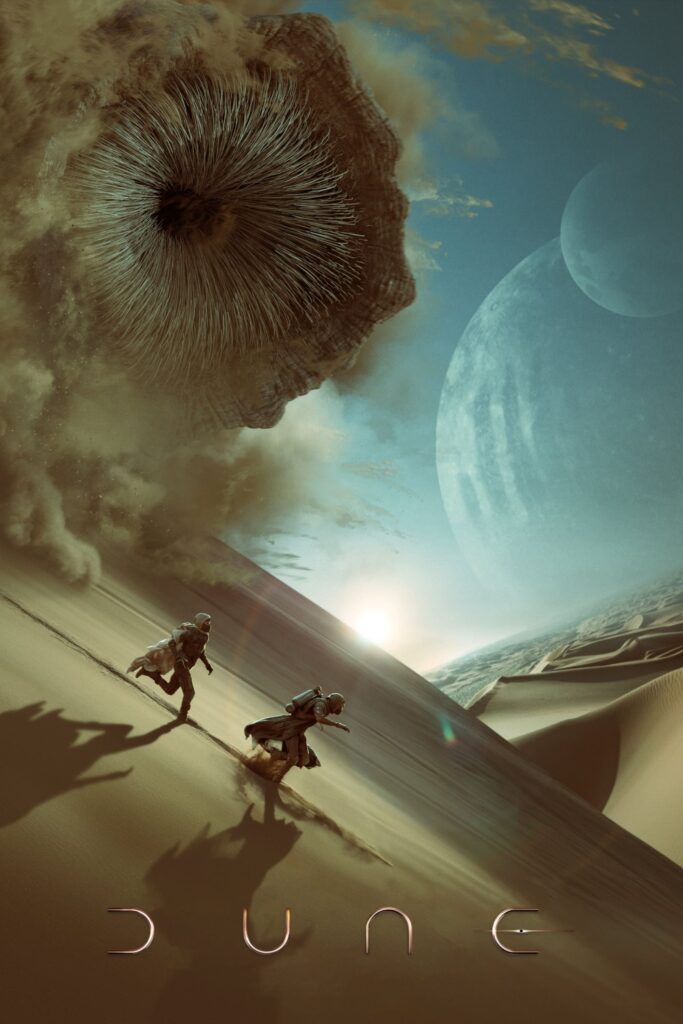
With “Dune”, Frank Herbert’s characters are constantly engaged in a power tussle where power is used often as a metaphor for control: an Emperor wants to hold on to his power so he gives control over the planet Arrakis, the El Dorado of deep space, to his closest rival, the valiant Duke Leto; The Duke’s arch-rival Baron Harkonnen wants to kill the Duke and exert even more power and influence over Arrakis. Then there’s the religious cult of psychic women, the Bene Gesserit. They want to control Paul, a super being who’s also trying to control his time-god abilities so he can control the fremen who control the desert of Arrakis… And thus begins the reader’s descent down the existential worm-hole (pun very intended) of Frank Herbert’s masterfully crafted if only slightly indulgent space saga.
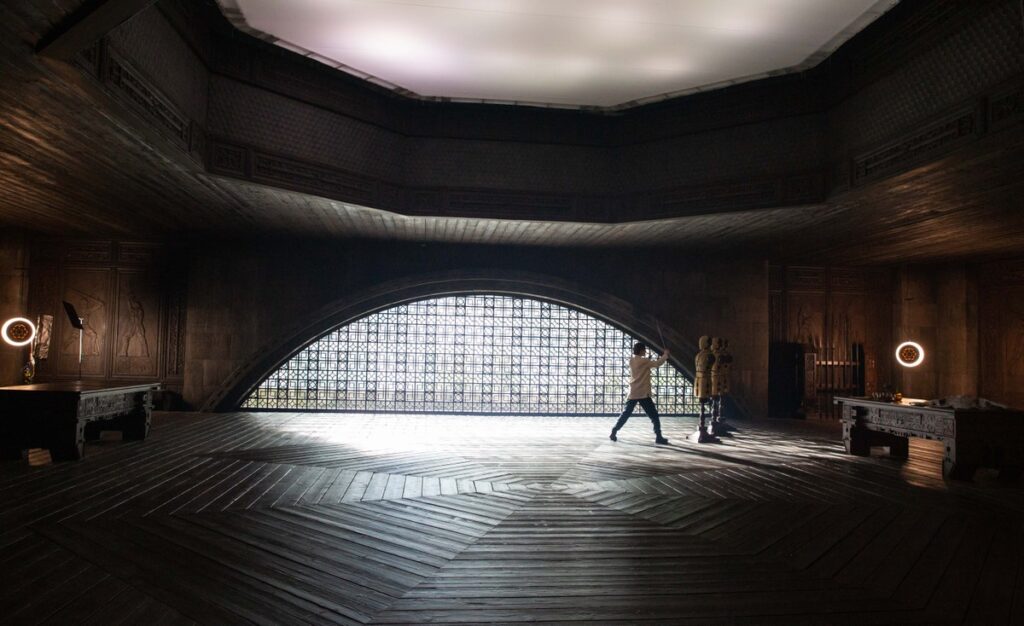
With that being said, how does the 2021 live-action adaptation of Dune hold up to its source material? The short answer is: Pretty well, honestly – all things considered. The more critical response, however, might consider Denis Villeneuve’s adaptation a visually stunning 2-hour epic more indulgent than the book it is based on.
The spirit of the book is evidently present in its movie adaptation, this time anyway – who can ever forget the last attempt to adapt “Dune” on the big screen by David Lynch? Not this writer, though I’d honestly prefer that adaptation evaporate entirely from my memory — and certainly not David Lynch himself. That particular iteration was absurd, downright off-putting to say the least, but also completely off point.
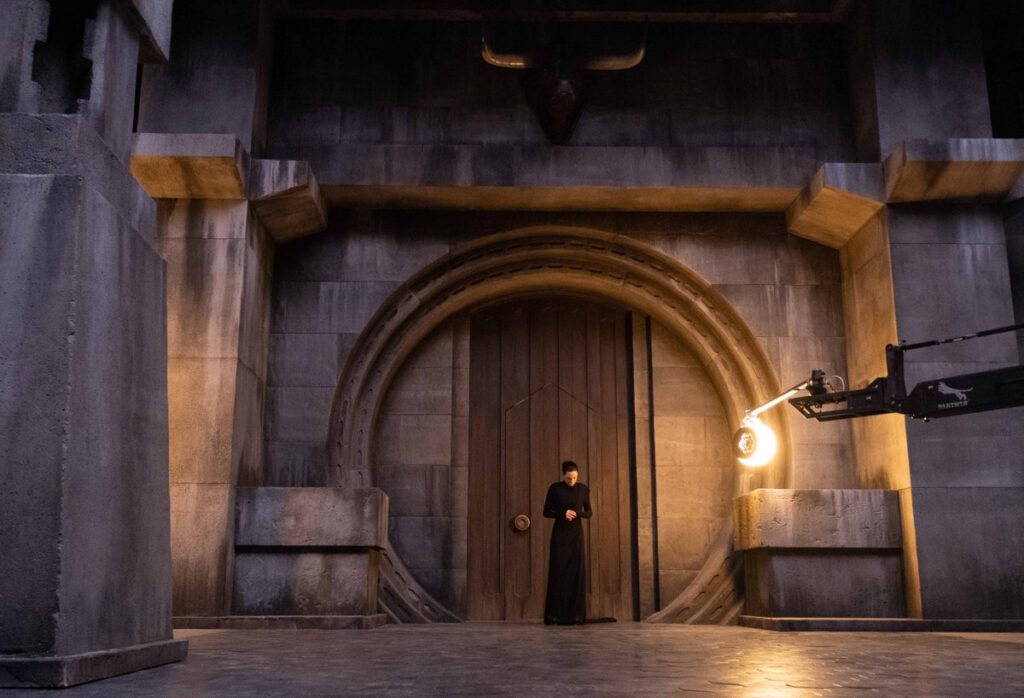
The 2021 Dune movie, on the other hand, begins on the same note as its source material; a brief introduction to the world which these groups and characters inhabit, its ruling structure; the vital mineral resource at the center of their delicate political ecosystem – to this end Denis Villeneuve is a student of Frank Herbert’s. The first hour of the movie moves at a slow pace that feels intentional. For anyone who has read Dune, they’ll notice it hearkens the author’s words written in the very first pages, that old Bene Gesserit saying – “Beginnings are such delicate times”, a principle the director adheres to with such solemn attention to details of the most minute significance, from Atreides family heirlooms (The oil painting and severed bull’s head) down to the costume design.
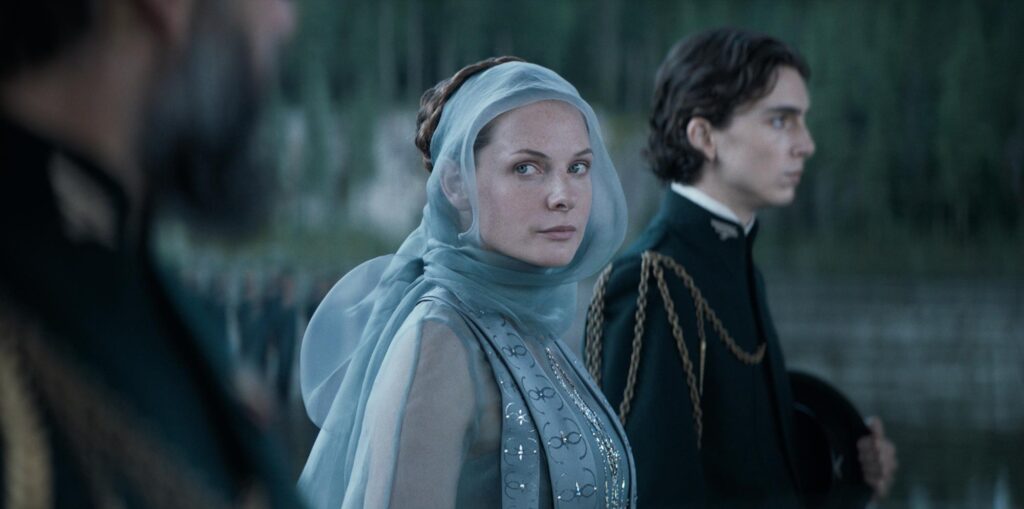
The uniforms worn by the House Atreides are Victorian in style, reminiscent of another group of imperialists who also left their native land to colonize a foreign civilization and “refine” their resources. Sound familiar? That’s because Director Denis Villeneuve wanted his version of Dune to feel historical, like a period film, as opposed to a traditional sci-fi romp like Guardians of the Galaxy, for example. This direction ties even deeper to the world of Dune, a world without artificial intelligence or reliance on robots and computers as we’ve come to expect from most Hollywood predictions/portrayals of the future. It is a world where human will and spirit have prevailed over technology, as has its customs. But the European colonial quest is just one of the many comparisons the books make to real human history. Religion and climate change are another.
Clearly, the Bene Gesserit and their mission is no different from the race for religious monopoly and global dominance as witnessed in the 15th-19th century – and perhaps even currently by certain religious groups in their missionary efforts, spreading their influence over multiple cultures, like some shadow organization or cult, through syncretism and the message of a promised messiah, much like we see in the Bene Gesserit with Paul Atreides and the Fremen who’ve been made to believe he’s the saviour they have been expecting, to deliver them from under their current feudal oppression. The very same feudal system Paul Atreides, their “saviour”, belongs to by right of birth. He is after all the new Duke Atreides, following the death of his father at the hands of Baron Harkonnen (acted to perfection by Stellan Skarsgård).
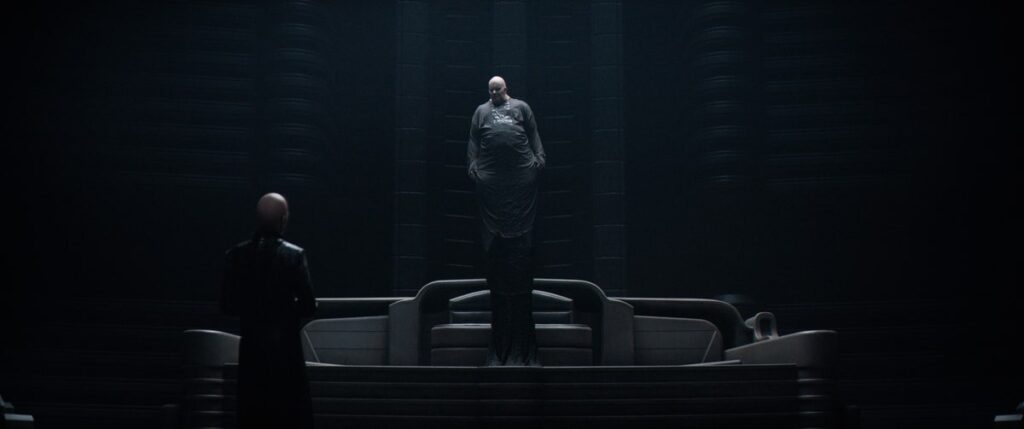
Related:
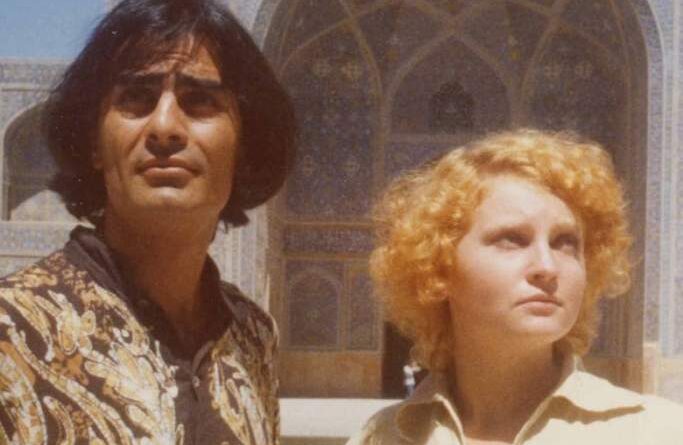 5 Foreign Language Films to Watch
5 Foreign Language Films to Watch
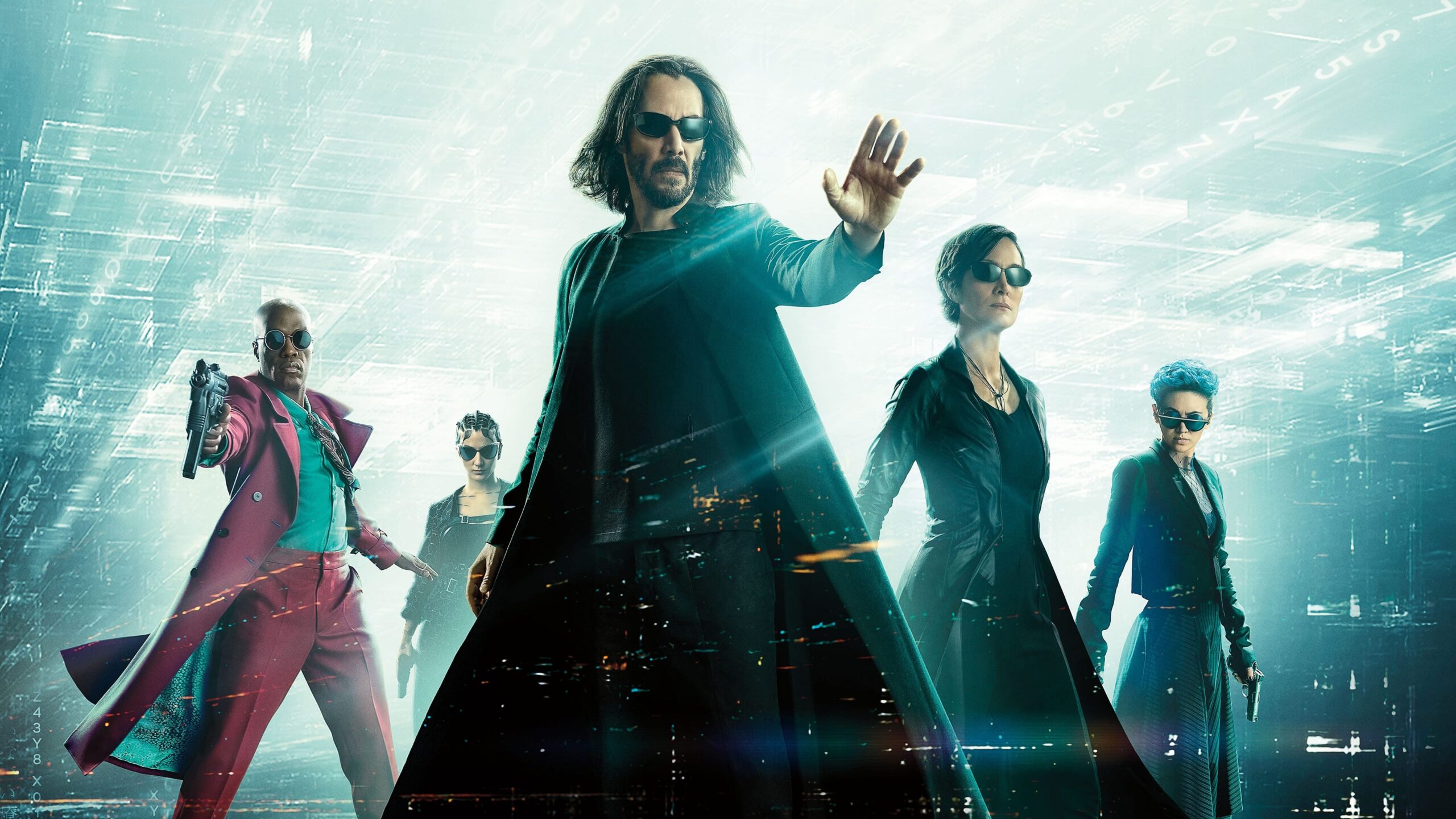 ‘The Matrix Resurrections’ Review: A Tired Rehash of the Old
‘The Matrix Resurrections’ Review: A Tired Rehash of the Old
Furthermore, in one interview Frank Herbert describes Dune as a metaphor for the shortages resulting from overpopulation. The author curiously refers to water as a comparison for, not the fictional spice mineral found on the planet Arrakis, but crude oil (petroleum), a substance currently still being mined in impoverished countries for market value by European and American companies at a cost to the environment. This is the world Dune wants the reader – or viewer – to imagine, one that mirrors actual history and current realities. A cautionary critique; uncomfortable fiction.
It is on this note that the movie parts from its scripture.
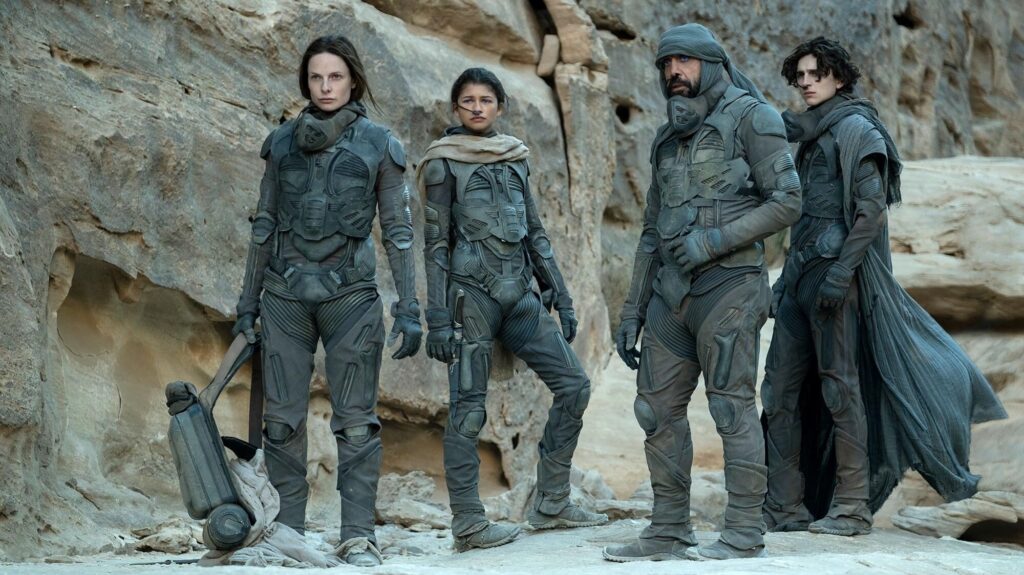
Plenty of the book’s social commentary on water and class divide is almost entirely ignored for the more plot-accelerating spice. In one key omitted scene from the book, Duke Leto, to the shock of all noble houses and Fremen present, repudiates the long-held custom of gifting damp towels from his dinner table away to the poor Arrakis water beggars. Instead what is shown is a short scene with one Fremen gardener and his decorative trees. To be fair, this is somewhat understandable. You can’t possibly cram over 450 pages of a book into a theatrical runtime. David Lynch tried that and look how his Dune (1984) movie turned out. Still, to him that knows to do what’s right and doesn’t, it is a sin.
Instead, the movie sets a grand stage in Arrakis without revealing too much about the Landsraad, the Emperor, or the space guild. Denis’ film much rather focuses on the houses Harkonnen and Atreides, and their beef. And even then it holds its cards firmly to its chest, sadly letting the characters play into their own heroic or villainous archetypes as the case may be.
The result is what we got to see onscreen, a 2-hour buildup that portrays its main protagonist Paul Atreides as both the virtuous hero burdened with glorious purpose, and an entitled imperialist with superpowers on a revenge quest.
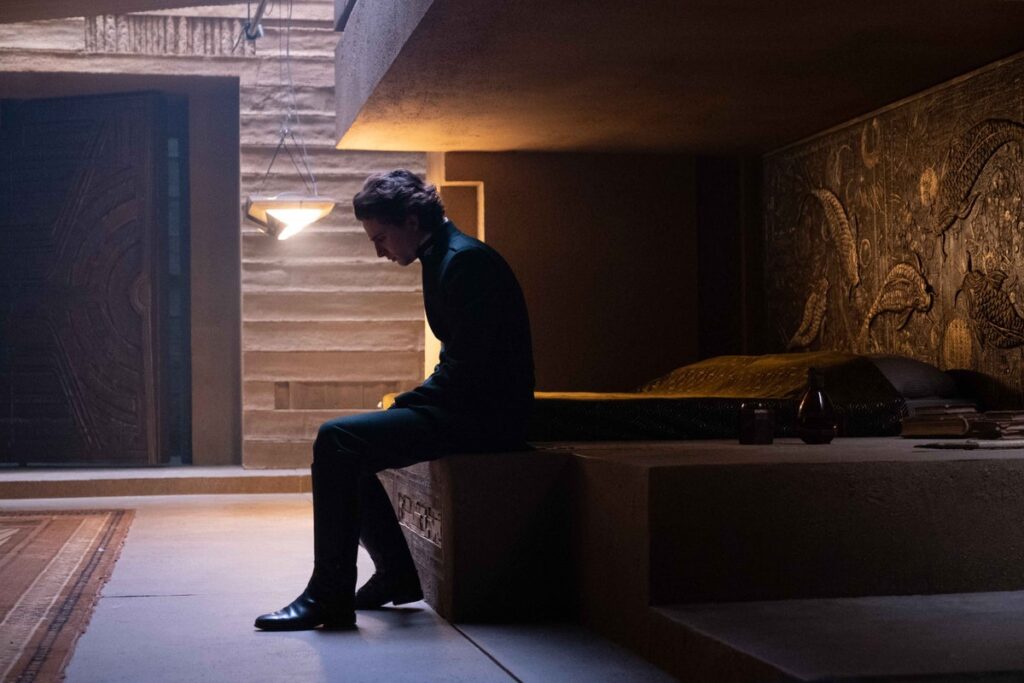
This is all materialized in one crucial scene in the movie’s final act where Paul Atreides has the chance to leave Arrakis, abandon his family’s claim to power on the planet, thereby avoiding an otherwise avoidable future Jihad. Instead Paul Atreides chooses to stay, inadvertently joining the race for power. This scene wasn’t taken from the original. It is new and unfamiliar, misleading both the unsuspecting audience and fans of the 1965 book, forcing some of us to ask the question, “what point is Dune trying to communicate?” Is it political? Is it ecological? Or are we wrong for assuming there’s a message in there at all?
Frank Herbert’s “Dune” is a harvest of socio-political as well as religious commentary. Whether or not there is any underlying message in the movie for future earthlings (and pedantic nerds like me) to dissect remains to be seen. Nevertheless, Dune (2021) is a beautifully told, masterfully shot adaptation that deserves all the attention it is currently receiving – and a credit to its director and production crew, both on and off screen.
And who knows? Perhaps what other deeper commentary we seek lies in the sequel. Thankfully, we should not have to wait too long to find out, since Villeneuve hopes to make a trilogy out of the story, and a second part is slated for 2023.



1 Comment